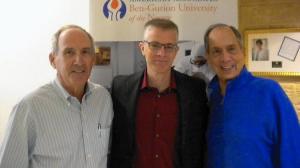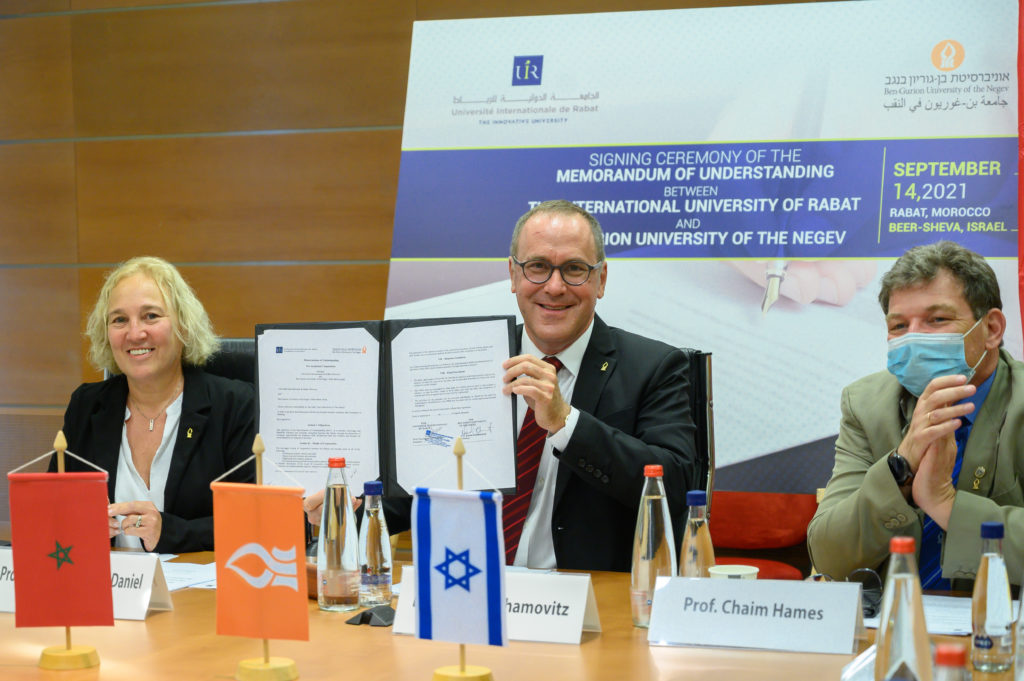
BGU Professor Discusses Israeli-Palestinian Conflict
BGU Professor Discusses Israeli-Palestinian Conflict
November 3, 2014
Israel Studies, Culture & Jewish Thought
Sun-Sentinel — At lectures in West Palm and Fort Lauderdale, Prof. Arieh Saposnik, of BGU’s Institute for the Study of Israel and Zionism, spoke about the historical origins and development of the Israeli-Palestinian conflict.
He covered the earliest iterations — first as local friction originating in the 1880’s with the arrival of the first Zionist settlers, then growing into a full-fledged national conflict by the 1920’s — and how these iterations shaped the contours of the conflict as we know it today.

From left, Al Newman, Prof. Arieh Saposnik, and Americans for Ben-Gurion University National Board Member Marty Weinberg
“I tried to point to the roles played by the three branches of the triangle — Arabs, Zionists and British. One central point was to debunk the twin myths that Jews were not aware of the Arab population and that the Arabs were not aware of Zionism and its meaning,” says Prof. Saposnik.
As to whether the Israeli-Palestinian conflict would ever be resolved, Saposnik cautions that “historians have a hard enough time predicting the past — one should never trust us to predict the future. Most people I know who try to do so — historians and non-historians alike — tend overwhelmingly to be wrong.”
What Prof. Saposnik did tell the groups gathered in South Florida, however, was that if the Israeli-Palestinian conflict is ever to be resolved, the real roots of the conflict must be understood.
“We must understand that it is not a conflict over real-estate — although real-estate certainly plays a role — but rather a conflict over the deepest questions of identity, historical consciousness, senses of belonging, national existence, and even religious convictions and notions of the sacred.”
“It is easy to understand why diplomats would try to side-step such seemingly irresolvable issues, but it seems equally obvious to me that one cannot hope to reach any kind of resolution without recognizing and addressing these core issues,” says Prof. Saposnik.



